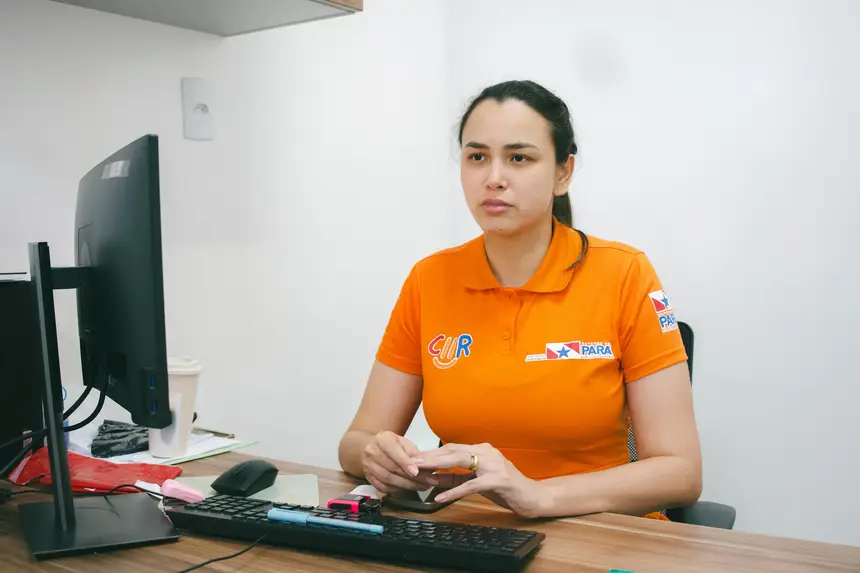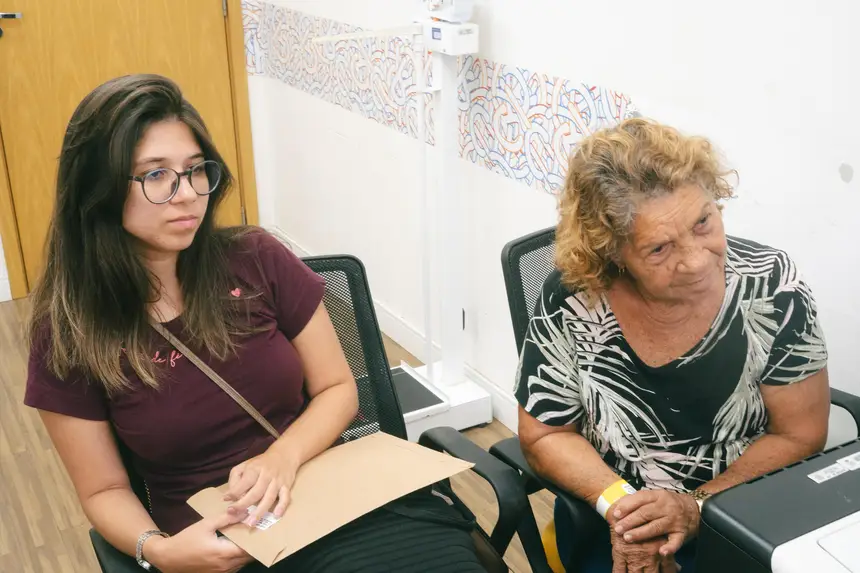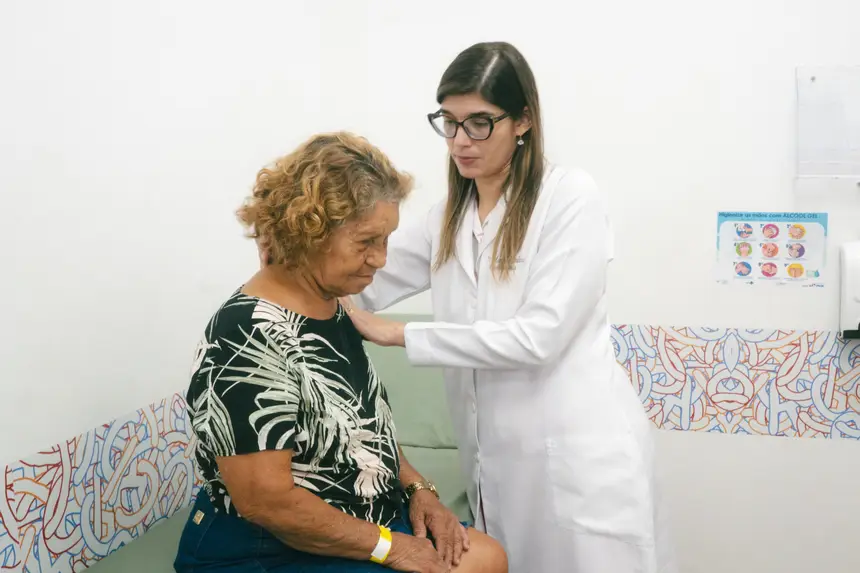CIIR reinforces the importance of hydration for the health of the elderly
On Grandparents' Day, the unit in Belém highlights essential care to prevent diseases and promote well-being in old age
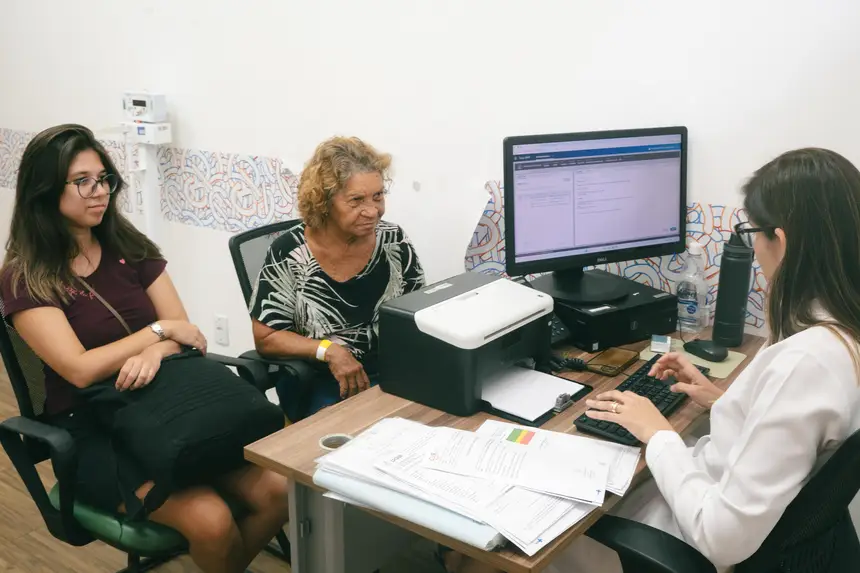
On Saturday (26), the date that celebrates Grandparents' Day, the Integrated Center for Inclusion and Rehabilitation (CIIR) in Belém reinforced the importance of adequate hydration among elderly individuals. The initiative aims to draw attention to an essential care, especially among patients with rheumatological or chronic diseases, contributing to the physical and mental health of this population.
Retiree Helena Oliveira, 75, recently visited CIIR for a consultation with rheumatologist Margarida Boulhosa. Diagnosed with osteoporosis and osteoarthritis, Helena shared her perceptions about the need to stay hydrated. "I don't usually drink a lot of water, but I know I need to. When I do, I feel the bitterness in my mouth go away. We get older and start to worry more, right?" she stated, accompanied by her granddaughter, Maira Lasmar.
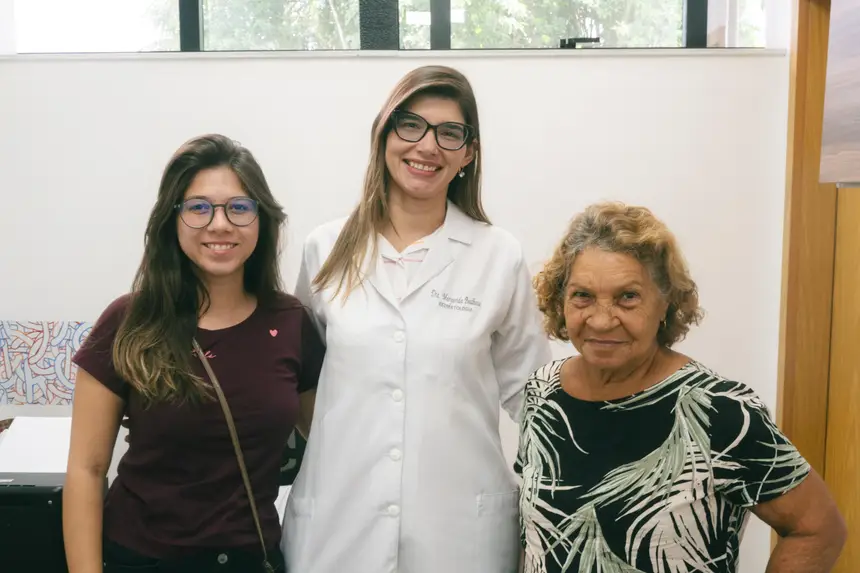
According to the doctor, lack of fluids can intensify joint pain, cause cramps, dizziness, and increase the risk of falls. "It also reduces the lubrication of the joints, worsening the symptoms of osteoarthritis," she explained. She emphasized that aging alters the perception of thirst and hormonal regulation, requiring continuous guidance. "It's a matter of health education. The elderly need to understand the importance of hydration even without feeling thirsty," she added.
Nutrition and hydration as allies
Nutritionist Luana Oliveira emphasized that hydration can also be promoted through food. "Fruits like watermelon, melon, orange, and pineapple, as well as vegetables like lettuce, cucumber, and zucchini, contribute significantly," she advised. For elderly individuals weighing around 70 kg, the recommendation is 2.1 to 2.4 liters of fluids per day.
Luana warned about the consequences of dehydration, such as loss of appetite, constipation, urinary infections, and mental confusion. "Offering fluids throughout the day, adapting to the elderly's preferences, using attractive cups, and encouraging group consumption are simple and effective strategies," she recommended.
Humanized and comprehensive care
CIIR adopts a person-centered approach, promoting active listening, family participation, and strengthening emotional bonds. By supporting elderly individuals like Mrs. Helena in adopting healthy habits, the unit reaffirms its commitment to comprehensive and humanized rehabilitation.
Reference in inclusion and rehabilitation
CIIR is a reference in Pará for medium and high complexity assistance to People with Disabilities (PwD) visual, physical, auditory, and intellectual. Access to services is done through referrals from health units, via the Municipal Regulation Center, which directs requests to State Regulation. The user's profile is analyzed by the State Regulation System (SER).
Service: Integrated Center for Inclusion and Rehabilitation (CIIR)Rodovia Arthur Bernardes, nº 1.000, Belém (PA)Phone: (91) 4042-2157 / 58 / 59Administration: Government of Pará, through the State Department of Public Health (Sespa), in partnership with the National Institute for Social and Human Development (INDSH).


